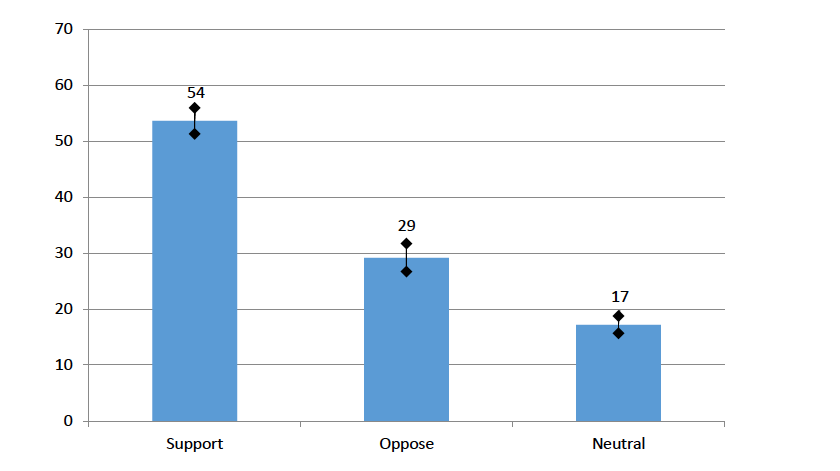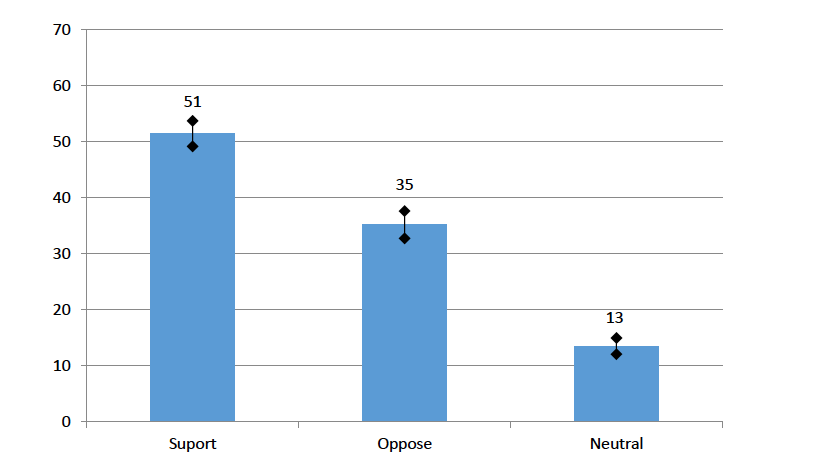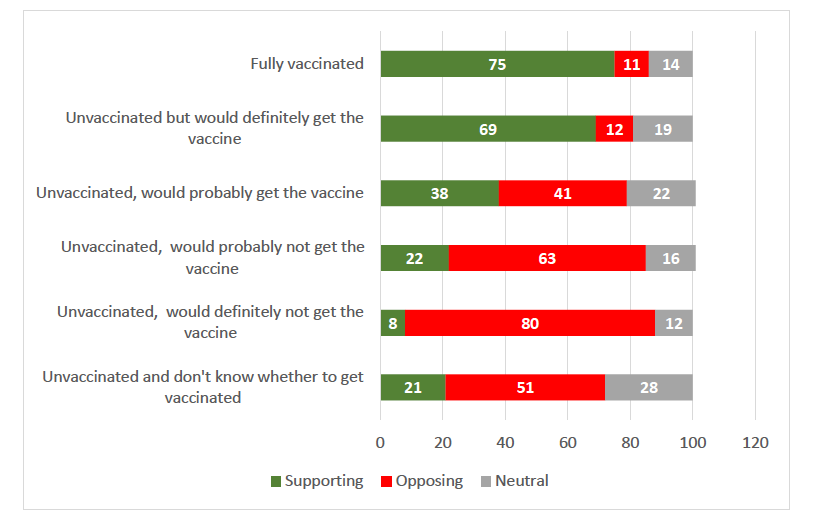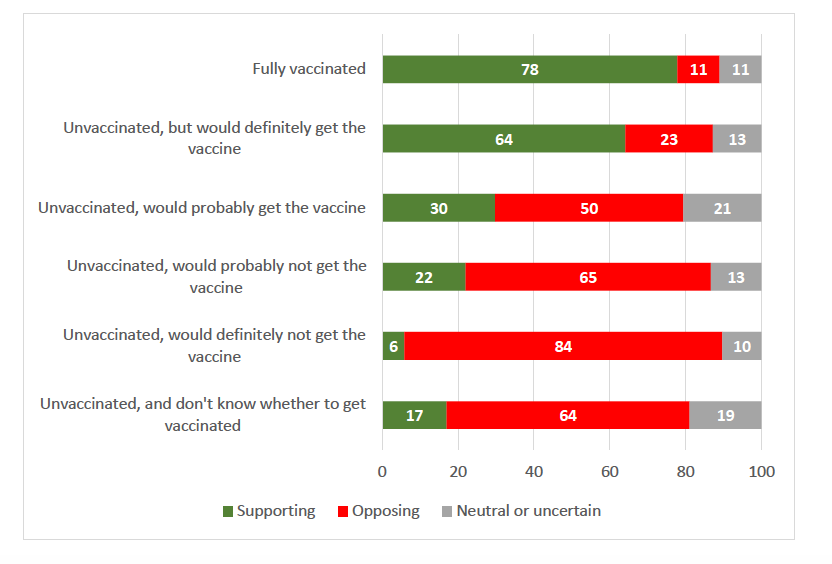A recent University of Johannesburg and HSRC survey found that South Africans are split over the issue of vaccine mandates and vaccine passports. What is interesting is where the divisions lie. Although online debate might suggest that support for mandates is concentrated among wealthier, suburban South Africans, the survey tells a different story.
The fifth round of the UJ/HSRC Covid-19 democracy study found that just over half of South Africans are in support of vaccine mandates and vaccine passports. Of the 6633 participants interviewed between October and November, 54% agreed that employers should have the right to make vaccinations mandatory in the workplace. Support for having to provide proof of vaccination in order to enter public spaces – so-called vaccine passports – was slightly lower at 51%. Some of the remaining respondents were neutral rather than opposed to the measures. See figures 1 and 2.


Who is in support of vaccine mandates? The research team, comprising researchers from the University of Johannesburg and the Human Sciences Research Council, sliced the results by location, education level, race and age. They found higher support for the workplace mandates among people in rural areas (59%), followed by those in informal settlements (57%) and township and RDP housing (57%). It’s worth noting that these areas tend to have poorer healthcare, and so individuals likely face higher risk if they contract the virus. Participants living in suburban areas were the least supportive (37%) of workplace mandates.
Higher levels of education were associated with greater opposition to mandatory vaccines and to passports. Around 60% of people with less than a matric supported the measures, compared to only around 40% of participants with post-matric education. By race, black and Indian adults were most supportive of mandates and passports, with white South Africans expressing the greatest opposition: just 1 in 3 (32%) of white participants indicated support when asked separately about mandates and passports. Sixty-five percent of Indian adults supported workplace vaccination, followed by 56% of black participants and 49% of coloured participants. Support for passports was 54% among black adults, 51% among Indian adults and 46% among coloured South Africans.
Younger South Africans were marginally more supportive of workplace mandates, although slightly less on board with vaccine passports. There were no significant gender differences. Within all of these groupings, however, it is clear that opinions are divided.
Possibly impacting support for mandatory vaccines are reports that the vaccines are likely to be less effective against the Omicron virus. However, it is probable that vaccinations will still offer some protection against severe disease, researchers say, and will thus be critical to keeping hospital admissions down. Additionally, a Pfizer–BioNTech study showed that a third jab raised neutralising antibodies to a level comparable to that achieved with two jabs against other variants.
Stark divisions
The clearest divisions in opinions around mandatory vaccines, not surprisingly, were between South Africans who are fully vaccinated and those who do not wish to be vaccinated. In the latter group, support fell to just 10% for both workplace vaccines and passports. For those who are not vaccinated, but would or might get vaccinated, support fell between the two camps – see figures 3 and 4.


The study team also asked participants about support for vaccine passports to particular public spaces. These levels of support were slightly lower than agreement with vaccine passports in general, dipping below the halfway mark.
Just under half (47%) supported having to produce proof of vaccination for sporting events; between 43 and 45% supported them for restaurants, cafes, shisa nyamas (“buy and braai” venues) and the like. Fewer people (40%) were inclined to support vaccine mandates to enter places of worship.
“I suspect that when specific suggestions are given, the issue becomes more salient or real to the respondents, and this is when a modest share become more uncertain or even averse to the suggestion,” said the HSRC’s Dr Benjamin Roberts.
Said co-author Prof Narnia Bohler Muller, “I was hoping there would be more support for vaccine mandates as it is almost inevitable that we will have to introduce such mandates as many other countries have.”
.jpeg)
The survey was jointly run by the University of Johannesburg’s Centre for Social Change, and the HSRC’s Developmental, Ethical and Capable State research division. A total of 6633 participants participated between 22 October and 17 November 2021. Data were weighted by education, age and race, to ensure they reflect the make-up of the national population. In addition, the team incorporated an adjustment for vaccination rate by gender provided by the Department of Health to match data for the midpoint of the survey period. The survey is the fifth round of the UJ/HSRC Covid-19 democracy study.
Researcher contacts:
Prof. Narnia Bohler-Muller, divisional executive, and Dr Ben Roberts, a strategic lead, in the the HSRC’s Developmental, Capable and Ethical State division.
NBohlerMuller@hsrc.ac.za
BRoberts@hsrc.ac.za
